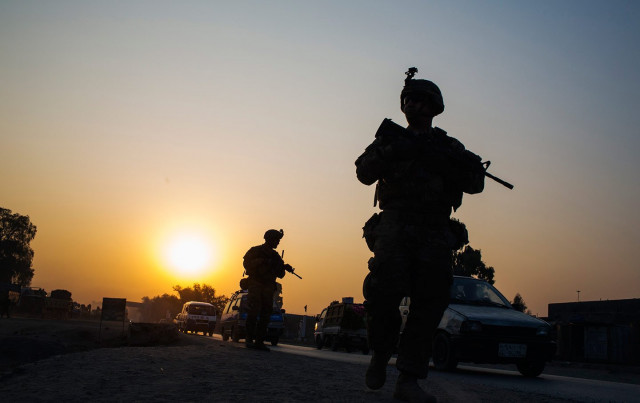Pakistan ‘brokered’ Afghan peace deal
Intra-Afghan dialogue to follow formal signing on Feb 29

A Reuters file photo
Ahead of formal signing of the agreement -- possibly on February 29 -- the Afghan Taliban would observe a seven-day ceasefire in a move aims at gauging the authority the Taliban representatives holding talks with the US wields on battlefield commanders as well as to create an enabling environment for an intra-Afghan dialogue.
But sceptics caution that the road to long-term peace in Afghanistan can still be bumpy even if the US and the Taliban ink the deal later this month.
The imminent peace deal was the result of a 14-month long painstaking negotiation process -- brokered and facilitated by Pakistan -- between the US and the Taliban.
In September, the two sides were almost close to signing a deal but President Donald Trump called off talks at the last minute, citing the Taliban's continued attacks targeting the American forces.
But the real reason for Trump's U-turn was the criticism he faced from within his administration that the proposed deal was nothing but a document of surrender since the Taliban were not ready to agree on a ceasefire.
But a few weeks later, US chief negotiator Zalmay Khalilzad resumed talks with the Taliban. He met a Taliban delegation led by Mullah Abdul Ghani Baradar in Islamabad in October last year.
Using the occasion Khalilzad pushed for a ceasefire by the Taliban before any deal could be signed.
Pakistan, which has brokered the talks in the past, was requested to play its part. After frantic behind-the-scene efforts, the Taliban showed an inclination to reduce violence, leading to the signing of a peace accord.
But another stumbling block emerged when the Taliban sought more time for talking to other Afghan groups while the US pushed for an intra-Afghan dialogue within 10 days of the peace deal.
The Taliban, however, were reluctant and insisted that they needed a month to start talking to other Afghan groups. That deadlock prompted Ambassador Khalilzad to dash to Islamabad on an unannounced visit on January 31, seeking Pakistan's good offices to convince the militants for an intra-Afghan dialogue without much delay.
Pakistan managed to break the stalemate as the Taliban agreed to enter into the intra-Afghan dialogue within days of signing a peace deal with the US, according to sources familiar with the development.
US officials and the Taliban have confirmed that that the peace deal is likely to be signed on February 29 and intra-Afghan dialogue would be held on March 10 -- either in Norway or in Germany.
Diplomatic sources acknowledged that Pakistan deserved the credit for brokering the imminent deal. The US has also publically acknowledged Pakistan's contribution.
The officials said no country would benefit more than Pakistan because of peace and stability in Afghanistan. Over the last 14-months, when Pakistan covertly played its role in bringing the Taliban to the negotiating table, Islamabad also discussed its strategic concerns with the US.
There were questions asked if Pakistan would get anything in return from the US for its pivotal role in helping the Afghan peace process succeed.
Indications are that the US and Afghanistan have already begun to address some of Pakistan’s security concerns. The recent killing of key commanders of outlawed Tehreek-e-Taliban Pakistan (TTP) in Afghanistan was believed to be the work of some such understanding between Pakistan and the US.
In return for Pakistan's help, the US was requested to eliminate anti-Pakistan elements operating out of Afghan soil.
Pakistan has in the past accused Indian secret agencies as well as the Afghan spy agency of backing the outlawed TTP and other such groups.
It has been pushing both the US and Afghan government to deny such elements sanctuary across the border. In recent weeks, there are visible changes as the Afghan forces were directly involved in some of the operations against the TTP terrorists.
Against the backdrop of Pakistan's positive role, the US is also likely to support Pakistan at the Financial Action Task Force (FATF) meeting kicked off in Paris on Sunday.
During the meeting with Prime Minister Imran Khan at the World Economic Forum (WEF), President Trump assured him of the US support in preventing Pakistan from being blacklisted by FATF, according to officials.
Pakistan also has made considerable progress on the 27-point action plan given by FATF to curb terror financing and money laundering.
Officials are confident that Pakistan will avoid being blacklisted while it may take some time before the country is taken out of the grey list.



















COMMENTS
Comments are moderated and generally will be posted if they are on-topic and not abusive.
For more information, please see our Comments FAQ